Adaptación de Open Journal Systems para el proceso de evaluación de recursos en la Red Universitaria de Aprendizaje
Main Article Content
Abstract
The evaluation process to ensure the quality of the educational resources to be published on the Red Universitaria de Aprendizaje has been a priority of this project since its establishment. In response to the growth of the evaluation team and the volume of proposals, different digital platforms were analyzed with the aim of improving the process. This motivated the search for a solution that would allow systematizing their different stages, which had been done manually for several years. The solution consisted in personalizing an open-source system, originally designed for academic magazine publication, through the development of plugins that allowed to incorporate structured information pursuant to the project requirements. The technical challenges of the process were documented, a controlled development environment was built and iterative testing was done with users to adjust the workflow and verify the operation of developed plugins. Specific functionalities integration allowed to register, evaluate and rule educational resources with greater efficiency, ensuring at the same time the traceability of the project. The adapted system was used in an institutional call and demonstrated its viability in a real operative context, contributing a substantial improvement in comparison of previous methods. This experience showed how it is possible to adequate existing technological tools for particular needs without compromising its stability nor its design principles.
Downloads
Article Details

This work is licensed under a Creative Commons Attribution-NonCommercial-NoDerivatives 4.0 International License.
Este trabajo tiene la licencia CC BY-NC-ND 4.0
References
Asmecher. (2017). OJS 3 custom metadata fields [Publicación en un foro]. Public Knowledge Project Forum. https://forum.pkp.sfu.ca/t/ojs-3-custom-metadata-fields/28674
Bolboacă, A. (2021). Practical Remote Pair Programming: Best practices, tips, and techniques for collaborating productively with distributed development teams. Packt Publishing. https://books.google.com.mx/books?id=HiIlEAAAQBAJ
Das, A., & Sutradhar, B. (2018). Harvesting of Additional Metadata Schema into DSpace through OAI-PMH: Issues and Challenges. SRELS Journal of Information Management, 1-7. https://doi.org/10.17821/srels/2018/v55i1/116603 DOI: https://doi.org/10.17821/srels/2018/v55i1/116603
Hartstein, J., & Blümel, C. (2021). Editors between Support and Control by the Digital Infrastructure—Tracing the Peer Review Process with Data from an Editorial Management System. Frontiers in Research Metrics and Analytics, 6. https://doi.org/10.3389/frma.2021.747562 DOI: https://doi.org/10.3389/frma.2021.747562
Kotahi. (s. f.). Kotahi, the future of scholar-led publishing. About - Kotahi. Recuperado 2 de junio de 2025, de https://kotahi.community/about/
Kude, T., Mithas, S., Schmidt, C. T., & Heinzl, A. (2019). How Pair Programming Influences Team Performance: The Role of Backup Behavior, Shared Mental Models, and Task Novelty. Information Systems Research, 30(4), 1145-1163. https://doi.org/10.1287/isre.2019.0856 DOI: https://doi.org/10.1287/isre.2019.0856
Miller, S. J. (2022). Metadata for digital collections: A how-to-do-it manual (Second edition). ALA Neal-Schuman.
Open Researcher and Contributor ID. (s. f.). About ORCID. Open Researcher and Contributor ID. info.orcid.org/what-is-orcid/
Public Knowledge Project. (s. f.-a). PKP Timeline. Simon Fraser University. Public Knowledge Project. Recuperado 30 de mayo de 2025, de https://pkp.sfu.ca/about/timeline/
Public Knowledge Project. (s. f.-b). Theming the Editorial Backend. Theming the Editorial Backend. Recuperado 4 de junio de 2025, de https://docs.pkp.sfu.ca/pkp-theming-guide/en/theme-backend.html
Public Knowledge Project. (s. f.-c). OJS Workflow and Platform. Recuperado 10 de junio de 2025, de https://pkp.sfu.ca/wp-content/uploads/2024/06/OJS-Workflow-and-Platform-2024.png
Public Knowledge Project. (s. f.-d). Open Journal Systems MVC Diagram. PKP Docs. Recuperado 10 de junio de 2025, de https://docs.pkp.sfu.ca/ojs-2-technical-reference/en/2_introduction.html
Public Knowledge Project. (2025). Plugin Guide for OJS and OMP. PKP Docs. https://docs.pkp.sfu.ca/dev/plugin-guide/3.3/en/
Tabatadze, B. (2024). Technological Aspects of Open Journal Systems (OJS). Journal of Technical Science and Technologies, 8(1), 23-29. https://doi.org/10.31578/jtst.v8i1.151 DOI: https://doi.org/10.31578/jtst.v8i1.151
Tan, X., Lv, X., Jiang, J., & Zhang, L. (2024). Understanding Real-Time Collaborative Programming: A Study of Visual Studio Live Share. ACM Transactions on Software Engineering and Methodology, 33(4), 1-28. https://doi.org/10.1145/3643672 DOI: https://doi.org/10.1145/3643672
Valenzuela, R. (en prensa) Red Universitaria de Aprendizaje: evolución del proyecto en la UNAM en Recursos Educativos Abiertos 3D en la enseñanza superior y el Aprendizaje Activo en entornos híbridos. Universidad Nacional Autónoma de México.
Wang, W. (2022). Research on Using Docker Container Technology to Realize Rapid Deployment Environment on Virtual Machine. 2022 8th Annual International Conference on Network and Information Systems for Computers (ICNISC), 541-544. https://doi.org/10.1109/ICNISC57059.2022.00112 DOI: https://doi.org/10.1109/ICNISC57059.2022.00112
Willinsky, J. (2005). Open Journal Systems: An example of open source software for journal management and publishing. Library Hi Tech, 23(4), 504-519. https://doi.org/10.1108/07378830510636300 DOI: https://doi.org/10.1108/07378830510636300



